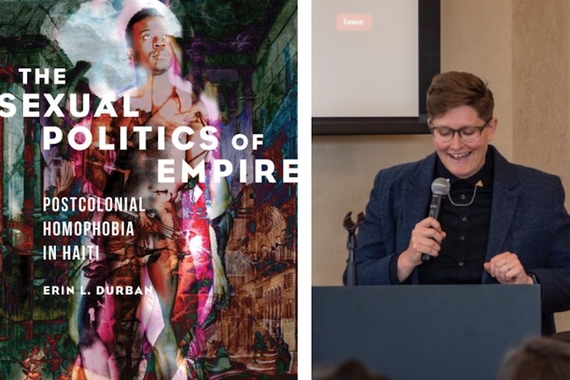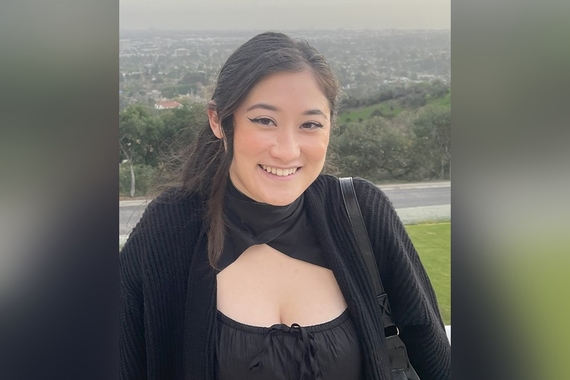What is Legal Islam? A Look at the Intersection of Religion and Law
After deciding to pursue cultural anthropology over law school, Assistant Professor Aisha Ghani, who joined the Department of Anthropology this fall, found her specific interests in the intersection of Islam and law.
Through two research projects, she examines the tense, and sometimes contradictory, relationship between Muslim religious beliefs and practices and secular law in the United States. She is interested in what happens when Muslim plaintiffs and defendants present religious claims that appear to conflict with Western conceptions of permissible religious practices, and how these legal contestations shape and produce “American Islam.”
Islam in Criminal Court
For her dissertation, Ghani looked specifically at how Islam is regarded in criminal courts in the US. After observing over 28 trials for terrorism suspects and Guantanamo proceedings, Ghani noticed that while the defendant’s religion was clearly instrumental in establishing the basis for terrorism charges, it had no status or weight as a legal claim that might, for example, be raised as a defense in the criminal court setting.
On the other hand, prosecutors routinely mentioned the religious beliefs and practices of defendants, but only in ways that strengthened evidence against the defendant. “Terrorism prosecutions severely limit the ways in which Islam can be raised in courtrooms. Islam serves as a kind of evidence that consolidates charges, rather than a religious claim that might, for example, allow Islamic forms of evidence to be presented and considered in court,” she says.
As American courts determine the guilt or innocence of terrorism defendants, “they’re reading the evidence through a lens of terrorism charges, and this creates a real sense of friction,” Ghani says of criminal cases where Muslim defendants claim religious reasons for their actions. As a result, many of the religious claims—based on differing conceptions of sovereignty, war, and religious obligation—made by defendants are not considered in trial.
By deciding what is and is not considered in court, judges are essentially maintaining, categorizing and defining what is and is not “religion” in America, Ghani says. Essentially “[they’re deciding] what is a legal, permissible form of Islam,” she says.
The Science of Islamophobia
Her next project will involve the other side of the law: civil court, which deals with conflicts between people, businesses, or institutions. Dubbing her work the “science of Islamophobia,” Ghani is going to look at how science has become a tool to discriminate against Muslim practices.
One concrete example of this kind of discrimination is local communities (six different locations in the US, including Texas, California, and Iowa) that claim burial practices in Muslim cemeteries are unsanitary. To prepare a body for burial, it is Muslim tradition to give the deceased a purification bath then, to bury the body without a casket.
Jewish and environmentally-friendly eco-cemeteries also include similar practices—posthumous bathing or burying the body directly in the soil to allow it to decompose naturally—Ghani explains, but Muslim cemeteries are being characterized as “dangerous sites,” an idea that is legitimated by raising concerns over water contamination and “environmental corrosion.”
“This allows for science to become a big part of the conversation in the courtroom,” Ghani says. “[It’s] used so that Islamic practices can be legally stopped without the plaintiff or the community […] feeling like they’re making an Islamophobic claim.”
Another example involves the Muslim practice of wudū or ritual washing before prayer. Some universities have prohibited Muslims from performing wudū in public bathrooms, again claiming a safety hazard, and only allowing the traditional washing of hands, face, and sometimes feet before prayer to occur in limited places, such as mosques or designated wudū stations, Ghani explains.
“The language of hygiene, environment, and safety are all scientific discourses. Well- established as Western norms, these concepts are linked to ideas of citizenship—they represent the practices and ways of a ‘modern,’ ‘progressive’ and ‘civilized’ society, or so the logic goes” she says. By using this language, these Islamophobic pushbacks are “framed as moral and ethical conundrums that any responsible state and judiciary must attend to,” she adds.
Thinking Critically and Moving Forward
As part of an expansive project, Ghani plans to travel to these cemetery and university sites from Michigan to Idaho, and study how this too is contributing to the shaping of “legal Islam” in the US. She is also working on a book about her findings.
In all anthropological research, including her own, it’s important to consider the relationship between the concepts at hand and the contexts from which they emerge, she says. “It’s a process of critical thinking and constantly asking what makes certain kinds of conditions and outcomes possible.”
This story was written by an undergraduate student content creator in CLAgency. Meet the team.



